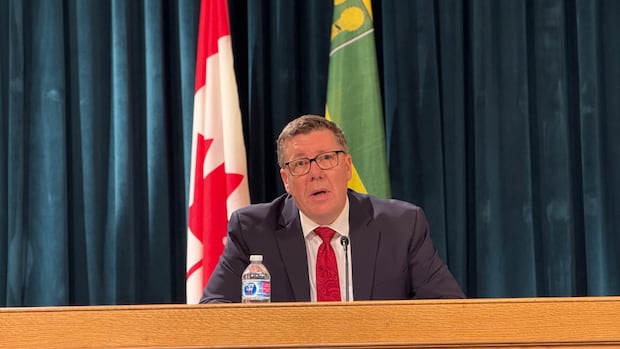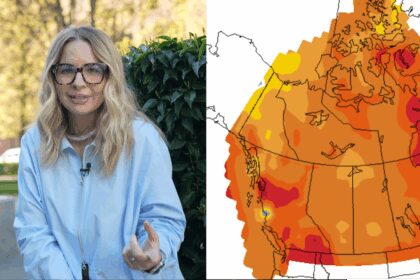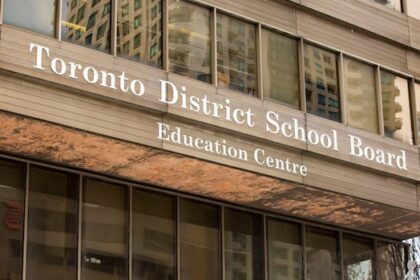SaskatchewanThe province plans to address homelessness and addictions in the newest session of the legislature, which kicked off Wednesday with the speech from the throne. It also plans to allow tailgating at Saskatchewan Roughriders’ games for the 2026 football season.Throne speech kicks off 2nd session of 30th legislature WednesdayAlexander Quon · CBC News · Posted: Oct 22, 2025 4:05 PM EDT | Last Updated: 43 minutes agoLt.-Gov. Bernadette McIntyre laid out the government’s priorities in a speech from the throne on Wednesday. (CBC Saskatchewan)Involuntary care for those dealing with addictions and expanded funding for homelessness — plus allowing tailgating at Saskatchewan Roughriders games — are the priorities on the provincial government’s agenda for this legislative session. Lt.-Gov. Bernadette McIntyre delivered the government’s throne speech to a packed legislative chamber on Wednesday in Regina. “We meet at a time of great challenges and great opportunities for our province,” said McIntyre, delivering her first throne speech since she was installed in the role. Among those challenges are the “historic realignment of world trading relationships” and the “imposition of significant tariffs by the United States and China.”While the external threats mentioned in the speech are on an international scale, much of the legislation previewed in the throne speech appears to address internal provincial issues such as homelessness and addictions. Outreach services, safetyThe province will renew and expand its approach to homelessness by providing a “significant increase” in support for outreach services, enhancing public safety and increasing the supply of supportive housing. The government has already added 141 emergency shelter spaces, 30 complex needs shelter beds and 155 supportive housing units throughout the province under its existing plan, according to the throne speech. The province plans to introduce two new pieces of legislation: The Response to Illicit Drugs Act and The Compassionate Intervention Act. The province did not provide details on the illicit drugs act, other than to say it will protect Saskatchewan families and communities from illegal drugs by cracking down “on those who profit from them.” The Compassionate Intervention Act appears to be the long-alluded-to legislation on involuntary treatment for those dealing with addictions issues. “There are some people with addictions problems who are simply unable to seek the treatment they need on their own,” McIntyre told the legislature. Saskatchewan Premier Scott Moe says any addictions treatment that is ‘ordered’ under upcoming legislation will apply only to a small number of people. (Alexander Quon/CBC)It’s not clear how that legislation will function. Moe said the details will come when the is legislation introduced, and that it will include “ordered” treatment that will apply only to a small number of people. “It is going to keep our community safer, yes, but it also is going to open up an opportunity and a pathway for hopefully what would be a recovery journey for that individual,” Moe said. The Official Opposition has already said it supports involuntary treatment, but only as a last resort and only if an individual’s charter rights are not violated. Beck echoed that sentiment on Wednesday. “There may be a place and a time for ensuring people get stabilized so that they can start that that journey to recovery,” she said. Saskatchewan NDP Leader Carla Beck, centre, speaks to media on Wednesday. (Alexander Quon/CBC)Outside the legislature, the Regina Anti-Poverty Ministry held a rally in the morning, hoping to be heard on the topics of social assistance, addictions services and housing. Peter Gilmer, an advocate for the group, said their presence was not only to grab the government’s attention, but also to keep the Opposition invested in the cause.“Certainly one of those key issues has been the inadequacy of benefits and wages for low income people,” Gilmer said. “Obviously, we’ll be listening very carefully on the housing front to see if there’s going to be expansion in terms of affordable housing and social housing in particular — anything that relates to the affordability question, both in relation to housing but cost of living in general.”More than 60 people attended the rally, which featured signs with slogans like “Stop poor-bashing” and “Wealth in numbers, fighting for hope.”The Regina Anti-Poverty Ministry held a rally Wednesday morning outside the legislature to bring attention to issues around social assistance, addictions services and housing. (Will Draper/CBC)A growing relationship with Ottawa In the throne speech, McIntyre directly addressed Saskatchewan’s relationship with the federal government of Prime Minister Mark Carney, saying it was “more positive than it has been at any time in the past decade.” Moe said he’s encouraged by the Prime Minister’s commitment to addressing Saskatchewan’s concerns about its natural resources based economy. The premier said he believes there will soon be more movement on the nation-building projects. That growing relationship is why there appears to be no direct plan by the province to address the punishing canola tariffs from China.Premier Scott Moe said the response must come from Ottawa. “The ball always has been, and really remains, in the federal government’s court,” Moe said. Saskatchewan will also introduce new trade promotion legislation, with the goal of encouraging freer trade among the provinces by reducing interprovincial trade barriers. It is not all sunshine and rainbows between Saskatchewan and Ottawa. The Throne Speech makes it clear the province remains opposed to the federal government’s “ill-conceived” gun buy-back program. That’s why changes are coming for The Saskatchewan Firearms Act that will “protect Saskatchewan gun owners from financial liability resulting from federal firearm prohibitions,” the throne speech said. The changes will also preserve a gun owner’s right to “receive fair compensation.” The speech did not include any details or new funding on how the province plans to deal with the aftermath of this summer’s devastating wildfires. It did say the provincial government will award volunteer, municipal and Saskatchewan Public Safety Agency fire departments with the Premier’s Commendation Award for their “heroic efforts.”Tailgating at MosaicOne of the upcoming pieces of legislation announced on Wednesday is The Tailgating Act, which will allow for tailgating at Mosaic Stadium before Saskatchewan Roughriders games. The new permits issued through Saskatchewan Liquor and Gaming will be ready before the start of the 2026 football season. Beck said there remain important topics that could have been addressed but weren’t in the throne speech.”Go Riders, go Jays — nothing wrong with that, but what we do put in a throne speech and what doesn’t appear in there, I think, says a lot about a government,” said Beck. The legislative sitting is set to run through to Dec. 8. ABOUT THE AUTHORAlexander Quon is the provincial affairs reporter for CBC Saskatchewan. He has been a reporter with CBC Saskatchewan since 2021 and is happy to be working in his hometown of Regina after half a decade in Atlantic Canada. He has previously worked with the CBC News investigative unit in Nova Scotia and Global News in Halifax. Alexander specializes in freedom of information requests and data reporting. He can be reached at: alexander.quon@cbc.ca. FacebookTwitterWith files from Alex Kozroski
Saskatchewan plans to introduce involuntary treatment, allow Roughriders tailgating










